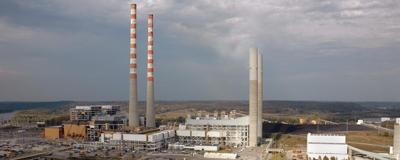The Tennessee Valley Authority announced on Tuesday plans for a 1,450-megawatt combined-cycle gas facility at its Cumberland City power plant. The agency chose on-site gas replacement over two alternatives: gas expansion at other TVA sites in rural Tennessee and a 22,640-acre solar generation and storage facility. According to a press release, TVA expects new gas units to come online in time to replace coal assets slated for retirement in 2026 and 2028.
The decision has rankled environmental advocates, who say the TVA never seriously considered clean energy alternatives and has now committed to decades of costly fossil fuel dependence. Several — like the Sierra Club and Southern Alliance for Clean Energy — formed the Clean Up TVA coalition last year specifically to oppose new gas expansion. Tuesday’s announcement confirmed what industry watchers had speculated about since 2019.
“TVA’s decision to dig its heels into the high costs of a fossil gas plant and pipeline in Cumberland is yet another indication that the public utility has run afoul of its mission and the administration’s goals, and must have oversight from an independent body,” says Dr. Stephen A. Smith, executive director of SACE, in a press release issued a few hours after TVA released its Record of Decision on Jan. 10.
Nashville lawyers with the Southern Environmental Law Center criticized gas expansion last week, alleging that TVA failed to adequately study clean energy alternatives, obscured the expansion’s impact on the climate and ratepayers and has not fully studied a gas plant’s effects on wetlands, streams and local species.
TVA’s move also paves the way for a 32-mile gas pipeline extension, starting just west of Davidson County, possibly prompting eminent-domain claims by pipeline constructor Kinder Morgan. When gas generators failed in late December, resulting in rolling blackouts in Nashville and across the region, critics called into question the reliability of fossil fuels during increasingly common spells of extreme weather. Federal and regional regulators quickly launched an investigation into the storm’s effect on Tennessee’s power grid.
TVA provides power to nearly 10 million residents across seven states in the Southeast. Technically a federal utility controlled by a presidentially appointed board, TVA has long been defined by close relationships between its executive leadership and the coal and gas industry. Under the leadership of CEO Jeff Lyash, the agency has drawn the attention of the federal government. Members of the House Committee on Energy and Commerce wrote Lyash in January of last year criticizing TVA’s business practices and its continued commitment to fossil fuels. Tuesday's decision directly contradicts goals laid out by President Joe Biden, who announced a plan in 2021 to completely decarbonize the energy grid by 2035.
After board spots sat vacant for months in 2022, Biden’s five nominees were approved by the Senate in late December, signaling a possible move for more direct executive control of the country’s largest public power producer. They include Brentwood resident Beth Geer, chief of staff to former Vice President Al Gore.
TVA is still weighing options for the replacement of coal-fired units at its Kingston fossil fuel plant, the site of a devastating coal ash spill in 2008.





